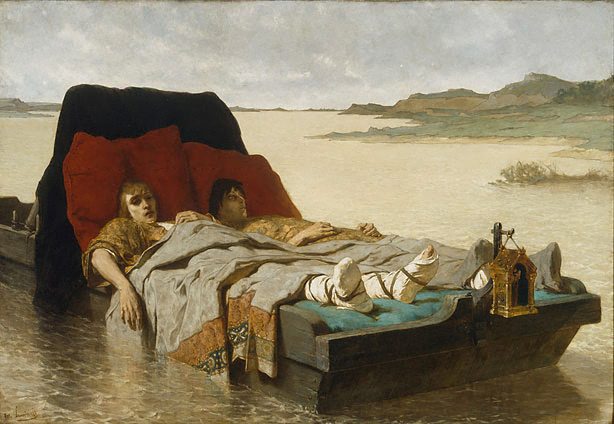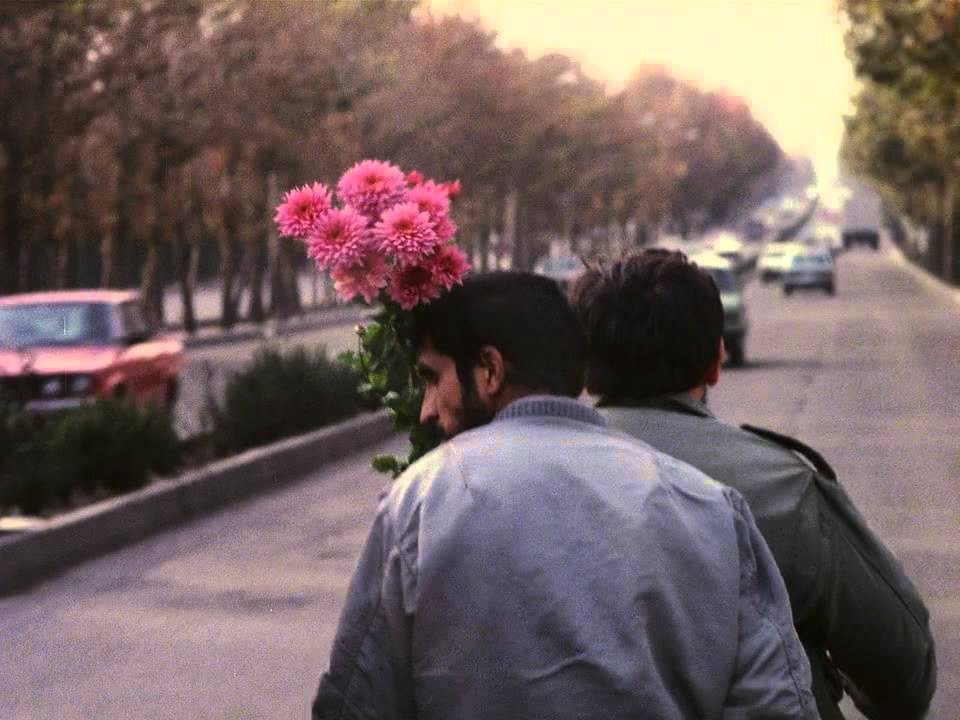Sculpting in Time 雕刻時光
Andrei Tarkovski
这些书籍并不能满足我,反而驱使我去辩证,并提出自己对问题和拍片目的的看法。我了解,我的工作准则是建立在透过对既存理论的质疑,透过一股冲动去表达自己对艺术基本原则的诠释,那已然成为我生命中的一部分。(P1)
毕竟艺术创作并没有绝对的准则,随着年龄的改变而有所不同。由于它的目的在了解这世界,它遂有无穷多的方面联系着人类和其生命活动;尽管知识之道无穷,任何一个迈向了解人类存在意义的步伐,不论多么微小,尽皆不容忽视。(P8)
对我而言,最有趣的角色,便是这种外表看似沉滞,内里却充满了爆炸性情感的人。(P11)
我个人认为诗的推理过程比传统戏剧更接近思想的发展法则,也更接近生命本身。然而,古典戏剧的方法却被视为惟一的模式,多年来它界定了戏剧冲突的表现形式。
经由诗的连接,情感得以提升;观众也将由被动变得主动,他不再被作者所预设的情节所左右,而是亲自参与一个探索生命的历程,惟有能帮他透视眼前复杂现象的深层意义者才为他所服膺。思维的复杂性以及世界的诗意为必要以简单明白的架构呈现,一般直线推演的逻辑就像几何定理的证明一样令人感到不舒服,这种方法的艺术成效显然远不及由诗的逻辑所开放的可能性,允许一种感性和理性的评价。由此可见至今电影仍甚少运用诗的逻辑是多么大的错误,它有许多资源尚待开发,它蕴含一股内在的力量,这股力量凝聚于影像中,以感性的形式向观众呈现,引发出张力,直接回应了作者的叙事逻辑。(P16)
当我讨论诗的时候,我并不把它视为一种类型,诗是一种对世界的了解,一种叙述现实的特殊方式。所以诗是一种生命的哲学指南。试想艺术家亚历山大·格林的个性和命运,他在濒临饿死边缘之际,仍带着自制的弓和箭上山找寻猎物。把那样的事件和那人所生存的时代环境联想在一起时,一个梦幻者的悲剧形象便跃然浮显。(P16)
Camera Lucida
Roland BarthesThe "private life" is nothing but that zone of space, of time, where I am not an image, an object. It is my political right to be a subject which I must protect. (P15)
Next, my phenomenology agreed to compromise with a power, affect; affect was what I didn't want to reduce; being irreducible, it was thereby what I wanted, what I ought to reduce the Photograph to; but could I retain an affective intentionality, a view of the object which was immediately steeped in desire, repulsion, nostalgia, euphoria? (P21)
...but at the moment of reaching the essence of Photography in general, I branched off; instead of following the path of a formal ontology (of a Logic) , I stopped, keeping with me, like a treasure, my desire or my grief; the anticipated essence of the Photograph could not, in my mind, be separated from the "pathos" of which, from the first glance, it consists. (P21)
一見之下,照片就應該感人。
STUDIUM:
Thousands of photographs consist of this field, and in these photographs I can, of course, take a kind of
general interest, one that is even stirred sometimes, but in regard to them my emotion requires the rational intermediary of an ethical and political culture. What I feel about these photographs derives from an average affect, almost from a certain training...this kind of human interest...is studium, which doesn't mean, at least not immediately, "study," but application to a thing, taste for someone, a kind of general,enthusiastic commitment, of course, without special acuity. It is by studium that I am interested in so many photographs, whether I receive them as political testimony or enjoy them as good historical scenes: for it is culturally (this connotation is present in studium) that I participate in the fi ures, the faces, the gestures, the settings, the action. (P26)
The studium is a kind of education (knowledge and civility, "politeness") which allows me to discover the Operator, to experience the intentions which establish and animate his practices, but to experience them "in reverse," according to my will as a Spectator. (P28)
PUNCTUM:
The second lement will break (or punctuate) the studium. This time it is not I who seek it out (as I invest the field of the studium with my sovereign consciousness) , it is this element which rises from the scene, shoots out of it like an arrow, and pierces me...I shall therefore call punctum; for punctum is also: sting, speck, cut, little hole-and also a cast of the dice. A photograph's punctum is that accident which pricks me (but also bruises me, is poignant to me). (P27)
It is not possible to posit a rule of connecfionbetween the studium and the punctum (when it happens to be
there)...In order to perceive the punctum, no analysis would be of any use to me.(P42)
I dismiss all knowledge, all culture, I refuse to inherit anything from another eye than my own.(P51)
The studium is ultimately always coded, the punctum is not. (P51)
What I can name cannot really prick me. Te incapacity to name is a good symptom of disturbance. (P51)
The photograph must be silent (there are blustering photographs, and I don't like them): this is not a question of discretion, but of music. Absolute subjectivity is achieved only in a state, an effort, of silence (shutting your eyes is to make the image speak in silence). The photograph touches me if I withdraw it from its usual blah-blah: "Technique," "Reality," "Reportage," "Art," etc.: to say nothing, to shut my eyes, to allow the detail to rise of its own accord into affective consciousness. (P55)
Last thing about the punctum: whether or not it is triggered, it is an addition: it is what l add to the photograph and what is nonetheless already there. (P55)
When we define the Phocograph as a motionless image, this does not mean only that the figures it represents
do not move; it means that they do not emerge, do not leave: they are anesthetized and fastened down, like
butterflies. Yet once there is a punctum, a blind field is created ( is divined)...(P57)
The punctum, then, is a kind of subtle beyond---as if the image launched desire beyond what it permit us to see: not only toward "the rest" of the nakedness, not only toward the fantasy of a praxis, but toward the absolute excellence of a being, body and soul together...the photograph leads me to distinguish the "heavy" desire of pornography from the "light" (good) desire of eroticism...(P59)
I now know that there exists another punctum (another "stigmatum") than the "detail." This new punctum, which is no longer of form but of intensity, is Time, the lacerating emphasis of the noeme ("that-has-been"), its pure representation.(P96)
"That's almost the way she was!" . was more distressing than to say, confronted with another, "That's not the way she was at all." The almost: love's dreadful regime, but also the dream's disappointing status-which is why I hate dreams.(P66)
Not a just image, just an image," Godard says. But my grief wanted a just image, an image which would be both justice and accuracy---justesse: just an image, but a just image. (P70)
These same photographs, which phenomenology would call "ordinary" objects, were merely analogical, provoking only her identity, not her truth; but the Winter Garden Photograph was indeed essential, it achieved for me, utopically, the impossible science of the unique being . (P71)
I had understood that henceforrh I must interrogate the evidence of Photography, not from the viewpoint of pleasure, but in relation to what we romantically call love and death.(P73)
For you, it would be nothing but an indifferent picture, one of the thousand manifestations of the "ordinary"; it cannot in any way constitute the visible object of a science; it cannot establish an objectivity, in the positive sense of the term; at most it would interest your studium: period, clothes, photogeny; but in it, for you, no wound.) (P73)
The name of Photography's noeme will therefore be: "That-has-been," or again: the Intractable. (P77)
The photograph is literally an emanation of the referent. From a real body, which was there, proceed radiations which ultimately touch me, who am here; the duration of the transmisston is insignificant; the photograph of the missing being, as Sontag says, will touch me like the delayed rays of a star. A sort of umbilical cord links the body of the photographed thing to my gaze: light, though impalpable, is here a carnal medium, a skin share with anyone who has been photographed.(P81)
"the essence of the image is to be altogether outside, without intimacy, and yet more inaccessible and mysterious than .the thought of the innermos being; without signification, yet summoning up the depth of any possible meaning; unrevealed yet manifest, having that absence-as-presence which constitutes the lure and the fascination of the Sirens" (Blanchot). (P106)
The air of a face(P107)
The air (I use this word, lacking anything better, for the expression of truth) is a kind of intractable supplement
of identity, what is given as an act of grace, stripped of any "importance": the air expresses the subject, insofar as that subject assigns itself no importance. (P109)
It is by this tenuous umbilical cord that the photographer gives lif. (P110)
One might say that the Photograph separates attention from perception, and yields up only the former, even if it is impossible without the latter; this is that aberrant thing, noesis without noeme, an action of though without thought, an aim without a target. And yet it is this scandalous movement which produces the rarest quality of an air. (P111)
02/May/2020
凡是美的都没有家,流星,落花,萤火,最会鸣叫的蓝头红嘴绿翅膀的王母鸟,也都没有家的,谁见过人蓄养凤凰呢?谁能束缚着月光呢?一颗流星自有它来去的地方,我有我的去处。
There is no home for anyone who is beautiful. Meteors, falling flowers, fireflies and the blue-headed, red-billed, green-winded queen bird that is most able to tweet are all homeless. Who has ever seen anyone raise a phoenix? Who can bind the moonlight? A meteor has its own direction, and I have my place to go.
1933
Shen Congwen
26/Apr/2020
More and more I realize, to work with painting, it always asks more than only giving the image an idea or a concept which seems to support it but actually not. But it also does not mean that it has to be without any idea when a painting is started. I believe this articulation of idea or concept is not the linear goal of a painting. Rather than that, the idea or the concept can be broken down into countless particles parallel or synchronized with all the other elements. These particles do not support the image, as they are not able to give or define the being of the image. What they do is that they add a layer on it reflecting different color from different perspective.
10/Apr/2020
“ The problem is not to discover in oneself the truth of one’s sex, but, rather, to use one’s sexuality henceforth to arrive at a multiplicity of relationships. And, no doubt, that’s the real reason why homosexuality is not a form of desire but something desirable.”
https://caringlabor.wordpress.com/2010/11/18/michel-foucault-friendship-as-a-way-of-life/
Friendship as a Way of Life
1981
Michel Foucault
10/Apr/2020

The Sons of Clovis II
1880
Évariste Vital Luminais
07/Apr/2020
这女人把右手从头发里抽出来,待要与客人握手,看看手上有肥皂,不便伸过来,单只笑着点了个头,把手指在浴巾上揩了揩。溅了点沫子到振保手背上。 他不肯擦掉它,由它自己干了,那一块皮肤便有一种紧缩的感觉,像有张嘴轻轻吸着它似的。This woman pulled her right hand out of her hairs and waited for a handshake with the guest, She saw there was soap on her hand, inconvenient to reach out. She only nodded smiling and wiped her fingers on the towel. Some foam was splashed to the back of his hand.
He refused to wipe it off, letting it dry by itself. That piece of skin therefore had a feeling of tightening, as if there was an open mouth gently sucking it.
EiLeen Chang, P33, Red Rose And White Rose
07/Apr/2020

From 2019
07/Apr/2020

Close-Up
1990
Abbas Kiarostami
06/Apr/2020
Her Father said, “I water your flowers with my tears.”
A guy asked me, “Should I wipe your tears with my dick? I don’t have a napkin at hand.”
05/Apr/2020